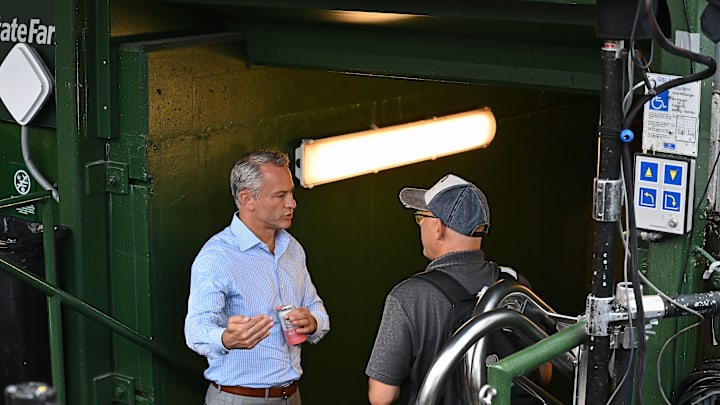On Monday, The Athletic announced a shift in their strategy and as part of that strategy and there were layoffs. Aligned with their new strategy, The Athletic trimmed the size of their MLB Beat as the move played up to their belief that the average consumer cares more about the National voice as opposed to the local voice.
What does that mean?
In layman's terms, The Athletics believes MLB is not a needle mover in terms of their traffic. As such, the little value they place on covering Major League Baseball should be at the National level as opposed to the local level. Meaning, from a Cubs' perspective, less Patrick Mooney and Sahadev Sharma and more Ken Rosenthal and Jim Bowden.
That is a problem and the result is the average consumer loses along with the talented beat writers that are now out of work. Fortunately, on the Cubs' beat, Sharma and Mooney remain but fans of a team such as the Chicago White Sox, they now have to comb through general topics on the National-MLB scale instead of getting the meat and potatoes of their meal with the previous work of James Fegan.
Local beat reporters have access. Local beat reporters know the context of a team's story. Meaning, when someone such as Mooney writes about the Cubs' motives ahead of the MLB Trade Deadline, that carries more weight than someone such as Bowden who likely will do a quick Google search of "Cubs news" and then assess their opinion based on what they see on the standings page.
For reference, when you are looking for a new baseball glove? Can you go to a Walmart and find a baseball glove? Sure and that will bring you to the surface level of what you need but not have the context of what you desire. That is what sporting goods stores are for.
Fans of Major League Baseball teams already are at the surface level and do not need a national voice to bring them to that level. Fans of Major League Baseball teams need the beat reporter to enhance their fandom and round out their already developed ideologies about their favorite team.
